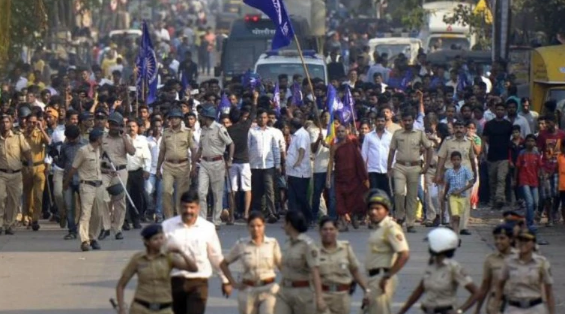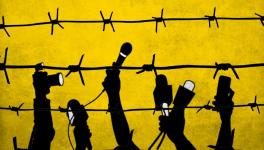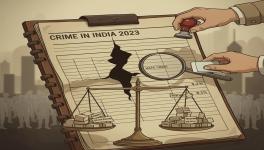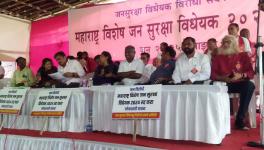Modi Govt Using State Resources to Keep Activists Behind Bars Amid Pandemic, Says New Report

File Photo
A report highlighting the ongoing misuse of restrictive laws by the Indian government to keep activists behind bars, at a time when the country is going through the worst phase of the pandemic, has been prepared by CIVICUS, a global civil society alliance. The report “Punished for speaking up: The ongoing use of restrictive laws to silence dissent in India” is an attempt to show how the government has resorted to laws including national security and counter-terrorism legislation to create an increasingly repressive environment for civic freedoms.
The report comes at a time when several human rights defenders, peaceful protesters and critics have been arrested and imprisoned in India, despite the raging pandemic. The latest case of such repressive practices include the arrests of several activists – who were involved in the anti- Citizenship Amendment Act protests – for alleged links to the Delhi riots which had taken place earlier this year in February.
To be released on September 22, the report also highlights the increasing violations in Jammu and Kashmir, which has been under extended restrictions for more than a year now following the removal of special status granted to the erstwhile state by the Government of India.
It adds that just a year into Prime Minister Modi’s second term in office, there has been a definite slide towards authoritarianism in the country, with dissent against the government being “conflated with anti-nationalism, often with disastrous results for human rights defenders and activists who have been subjected to damaging smear campaigns”.
Among the laws which are being misused by the government are Unlawful Activities (Prevention) Act, (UAPA), which is India’s primary counter-terrorism law; section 124A on ‘sedition’ of the Indian Penal Code, a colonial-era relic; and administrative detention laws such as the National Security Act (NSA) and the Public Safety Act (PSA), which applies only in Jammu and Kashmir, the report says.
Highlighting the humans rights violations made by such laws, Josef Benedict, CIVICUS Asia-Pacific Civic Space Researcher said, “The Indian government must stop using restrictive national security and counter-terrorism laws against human rights defenders and critics. The authorities must also drop the baseless and politically-motivated criminal charges against activists and release them immediately and unconditionally. The laws are incompatible with India’s international human rights obligations as well as India’s Constitution. Not only are the laws themselves inherently flawed, but their implementation makes it clear that they have become tools for judicial harassment, rather than for preventing or addressing criminality.”
Further, CIVICUS has also expressed concerns about the continued persecution of activists, many of whom have underlying medical conditions or are at risk of contracting COVID-19 in overcrowded and unsanitary prisons, even during the pandemic. “It is appalling that human rights defenders are locked up in overcrowded prisons and continuously denied bail despite calls by the UN to decongest prisons and release political prisoners during the pandemic. Holding them at this time puts them at serious risk of contracting COVID-19 and adds another layer of punishment for these activists, who have been detained just for speaking up for human rights,” said Benedict.
However, despite such repressive environment, the human rights defenders and civil society organisations in India have continued to keep up the fight against the increasing use of state resources by the Modi government to sustain its persecution of individuals and journalists who criticise the authorities.
Among the recommendations made by CIVICUS to the government include, drop all charges against human rights defenders, activists and protesters, and immediately and unconditionally release all those detained; review and amend India’s criminal laws to conform to international standards for the protection of fundamental freedoms and take steps to ensure that all human rights defenders in India are able to carry out their legitimate activities without any hindrance or fear of reprisals.
Also read: Denial of Bail to Arrested Activists During Pandemic Is Double Persecution: PUDR
Get the latest reports & analysis with people's perspective on Protests, movements & deep analytical videos, discussions of the current affairs in your Telegram app. Subscribe to NewsClick's Telegram channel & get Real-Time updates on stories, as they get published on our website.























